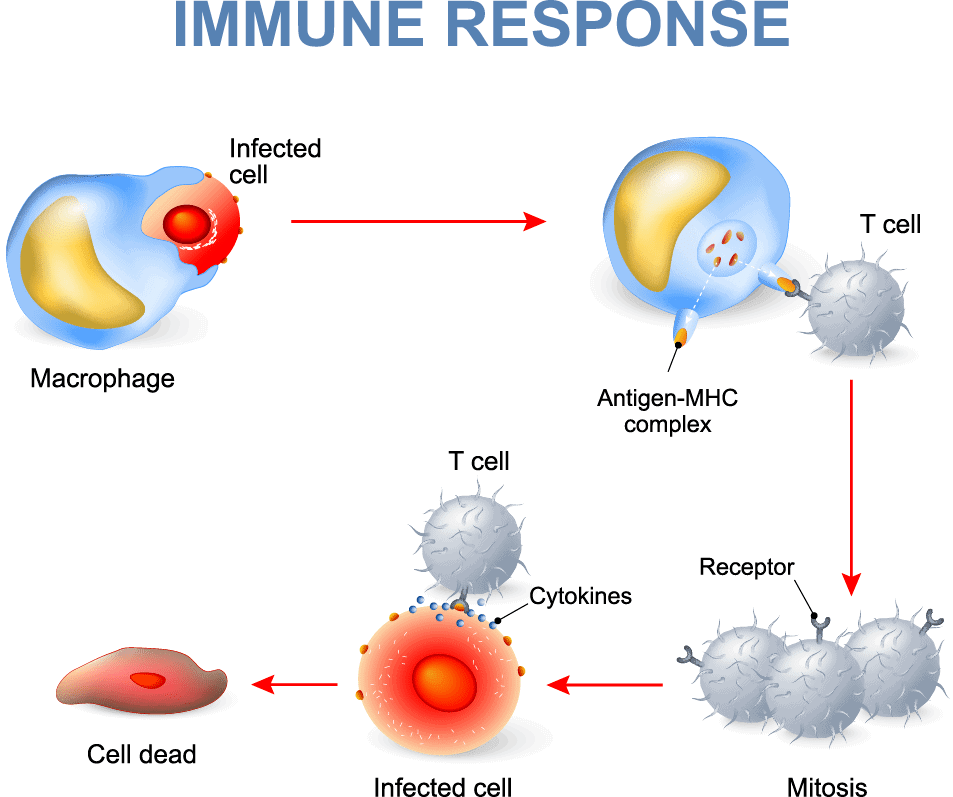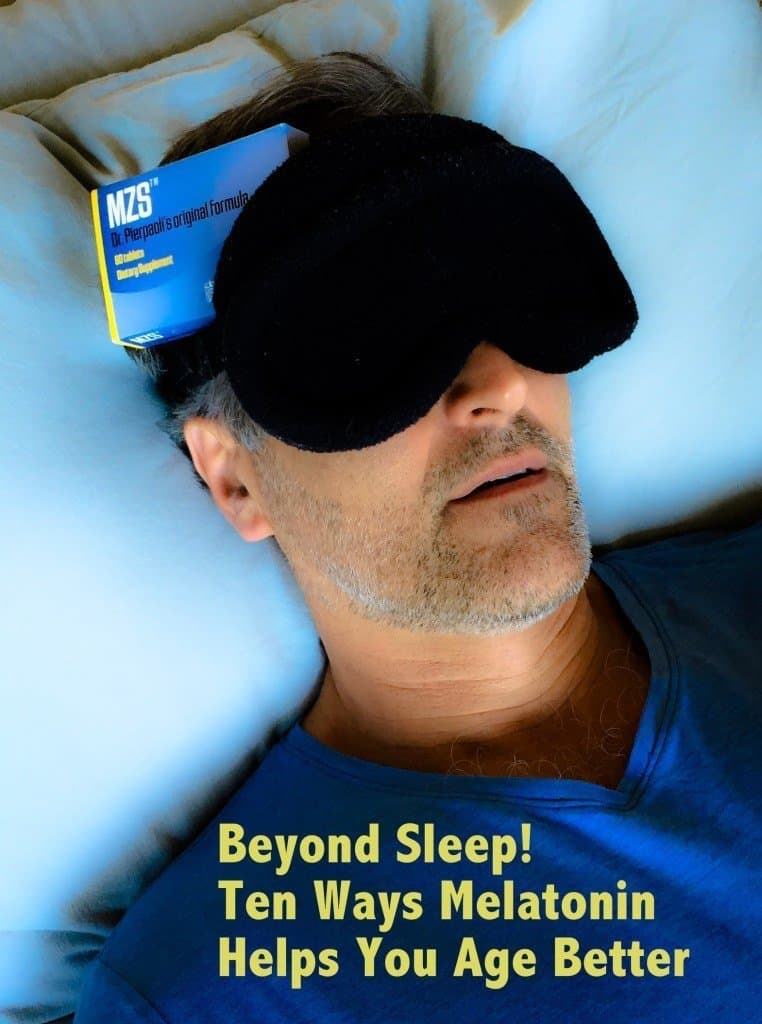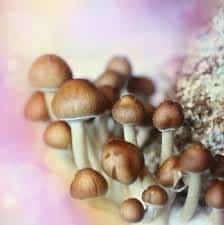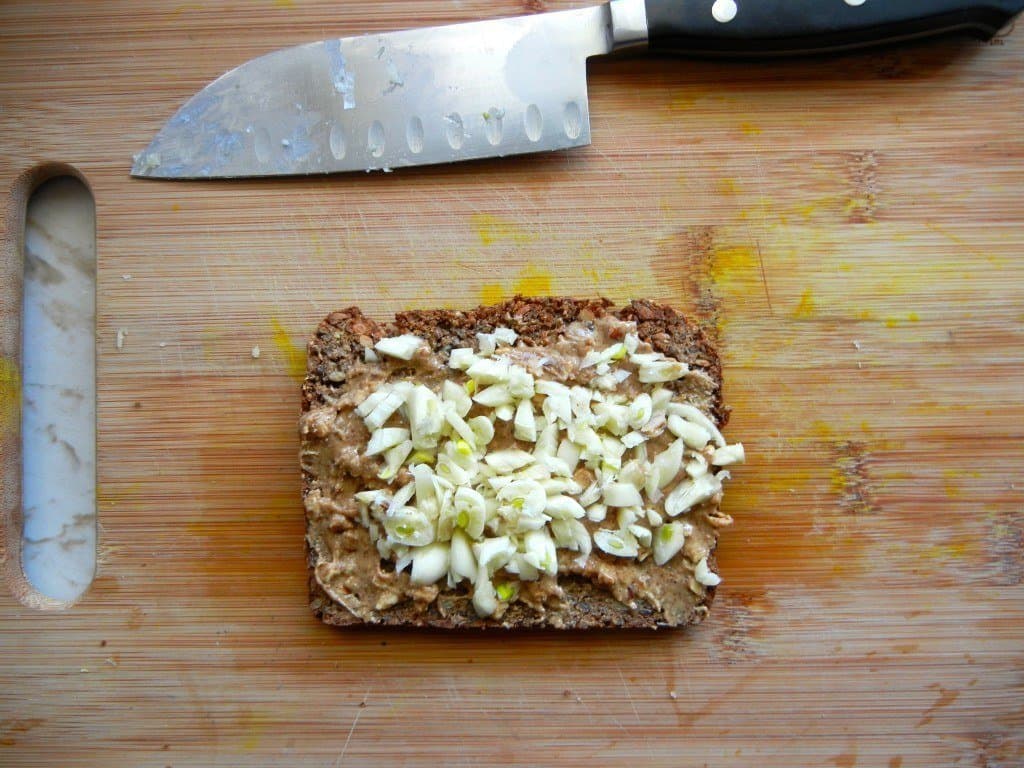How To Boost Your Immune System To Fight Viruses Like Coronavirus (Covid-19)

Boost your immune system by acting on science-supported lifestyle enhancements, some magic mushrooms and a few vitamin supplements. Learn what really works.
Check out my Covid Immunity Course(Updated April 9, 2020)
When a new virus like Covids-19 comes to town, your best hope is that you’ve already learned how to boost your immune system so that you reduce your chance of getting infected, or if infected, experience a speedy recovery.
If you haven’t consciously and actively worked to boost your immune system, now’s the time to get started.
How Your Immune System Works
Understanding how the immune system works can be a complicated endeavor, so let’s turn to KidsHealth for a digestible explanation.
The immune system is a complex network of cells, organs and tissues that work together to protect the body from infection. White blood cells called leukocytes play a key role, especially two types:
- Phagocytes are one type of white blood cells that “chew up” invading organisms, and one form of it, the neutrophil fights bacteria.
- Lymphocytes are another type of white blood cells that help the body remember invading organisms and help destroy them
When foreign substances (called antigens) are identified, the immune system works to recognize and destroy them. B lymphocytes are triggered to make antibodies. These specialized, sticky proteins lock onto specific antigens, but rather than being expelled, the antigens stay in the body. That way, should the immune system encounter that antigen again, the antibodies are primed to do their job. This is why when you get a disease such as chickenpox, you usually will not get sick from it again.
Vaccines (immunization) work in a similar way. An immunization introduces the body to a tiny dose of an antigen in a way that doesn’t make you sick, but this tiny amount is sufficient to induce the body to make antibodies that will protect you from future assaults.
Antibodies can recognize and lock onto antigens, but they need help to destroy them — and that’s the T cells’ job, some of which are, appropriately, called killer cells. T cells destroy antigens tagged by antibodies and help signal other cells (like phagocytes) to do their jobs.
Antibodies also can:
- Neutralize toxins (poisonous or damaging substances) produced by different organisms.
- Activate a group of proteins called complement that are part of the immune system, and help destroy bacteria, viruses or infected cells.
All of these specialized cells and other parts of the immune system offer the body protection against disease. This protection is called immunity.
We have three types of immunity — innate, adaptive, and passive:
- Innate immunity: As suggested by the term, we are all born a natural, built-in immunity, a type of general protection. The skin, for example, acts as a barrier to block germs from entering the body. Another example is the immune system itself, which innately recognizes when certain invaders are foreign and could be dangerous.
- Adaptive immunity: Adaptive (or active) immunity develops throughout our lives as we become exposed to diseases or when we’re immunized against them with vaccines.
- Passive immunity: Passive immunity is “borrowed” from another source, lasting for just a short time. For example, antibodies in a mother’s breast milk give a baby temporary immunity to diseases to which the mother has been exposed.
Implicitly, it seems, we tend to overemphasize the power of innate immunity. We all know someone who never seems to get sick, and we think this is due to his or her great genetics. Yes, genetics does play a role, but studies on twins tell us that the strength of our immune system is largely determined by non-heritable factors, such as adaptive and passive immunity, as well as lifestyle factors like stress, sleep, diet, exercise and various supplemental enhancements all play a role in the strength of our immune response.
The Elderly Are Often Immunity-challenged
It’s important to note — particularly given that the current coronavirus, Covid-19, is disproportionately infecting and killing the elderly — that our immune response capability becomes compromised as we get older, thereby allowing more infections. This increased risk correlates with fewer T cells in the elderly that are needed to fight off infection, which might stem from age-related thymus atrophy.
Diet and Immunity
The connection between nutrition and immunity in the elderly may be stronger than in the young; a condition known as micronutrient malnutrition supports this contention. Micronutrient malnutrition occurs when someone is deficient in some essential vitamins and trace minerals that are obtained from or supplemented by diet. This is common in the elderly, even in affluent societies, because older people commonly eat less quantities and varieties of food. Of course, this condition is worse in poor societies.
Scientists have long recognized that people who live in poverty and are malnourished are more vulnerable to infectious diseases. Whether the increased rate of disease is caused by malnutrition’s effect on the immune system, however, is not certain.
There are still relatively few studies of the effects of nutrition on the immune system of humans, and even fewer studies that tie the effects of nutrition directly to the development (versus the treatment) of diseases. But what we do know is that perhaps 80% of your immune system is influenced by the gut microbes that are part of your microbiome. Therefore, consuming fibrous and fermented foods (yogurt, sauerkraut, miso, sauerkraut, kefir, etc.) that promote beneficial gut bacteria and avoiding sugar-laden, processed foods that support the growth of harmful bacteria will boost your immune system.
As you’ve undoubtedly heard before, a healthy diet is the Mediterranean style of eating. It emphasizes whole fruits, vegetables, whole grains and healthy fats, found in foods such as fatty fish, nuts and cold pressed, virgin olive oil. Such a diet is high in nutrients such as vitamin C, zinc and other antioxidants shown to help reduce inflammation and fight infection.
Also important is to limit meat, especially processed and fried foods, as such foods are inflammatory. Cook with herbs such as garlic, ginger, rosemary, oregano and turmeric. All have been shown to have anti-inflammatory properties, and some, like garlic, have even been shown to be protective against colds.
Adults between the ages of 65 and 79 who followed a Mediterranean type of diet, along with taking a daily 400 IU vitamin D supplement for a year, showed increases in disease-fighting cells such as T cells, according to a 2018 study published in the journal Frontiers in Physiology.
Other common foods touted for their immune-boosting properties are ginger, citrus fruits, turmeric, oregano oil and bone broth. There are small studies that suggest a benefit to some of these foods, but strong evidence is lacking. For instance, the bone broth claim has been fueled by a study published in 2000 that showed eating chicken soup seemed to reduce symptoms of an upper respiratory tract infection. A number of small studies have suggested garlic may enhance immune system function. Claims that elderberry products can prevent viral illness also are making the rounds on social media, but evidence is lacking.
Sleep Boosts Your Immune System
In 2016 the Centers for Disease Control and Prevention (CDC) concluded that more than 33% of Americans weren’t getting enough sleep. Perhaps it’s because too many of us undervalue its importance.
The short-term consequences of insufficient sleep can include lethargy, poor judgment, car accidents, moodiness, memory problems, workplace mistakes, etc. The long-term problems associated with inadequate sleep can include cognitive issues, chronic inflammation, higher blood pressure, insulin resistance, impaired blood sugar regulation, higher cortisol, weight gain and cardiovascular disease. (A 2019 study in mice found a connection between the brain, bone marrow, and blood vessels that protects against hardening of the arteries. This mechanism only took place in mice who had a good quality sleep.)
Central to our topic, immunity, it’s important to recognize that your immune system needs the rest that sleep provides. When you’re sleep-deprived, your body produces stress hormones like cortisol that can suppress immunity.
According to a 2109 study, those who got a full eight hours of sleep had higher levels of T cells than those who slept less, and fewer infections. Get at least seven hours of snoozing per night — a 2015 study published in the journal Sleep, found that people who did so were four times less likely to come down with a cold than those who clocked less than six. Less than five hours sleep per night on a regular basis is associated with higher mortality, and having less than seven hours sleep for three nights in a row has the same effect on the body as missing one full night of sleep.
Incidentally, that pic of me with the black eye mask on shows my favorite melatonin brand, MZS, developed by Dr. Walter Pierpaoli, who has spent more than 50 years researching and conducing clinical studies about melatonin.
Stress Compromises Your Immune System
The term “fight or flight” is known as the stress response. It’s what the body does as it prepares to confront or avoid danger. When appropriately invoked, the stress response helps us rise to many challenges. But trouble starts when this response is constantly provoked by less momentous, day-to-day events, such as money woes, traffic jams, job worries, or relationship problems.
The momentary “fight or flight” stress response built into our physical constitution is a good thing; back in the day, you might have been tiger food without it. The problem arises when the stress isn’t temporary, but chronic. Chronic stress is a common reason behind:
- Elevated blood pressure, a major risk factor for heart disease.
- Immune system suppression, increasing susceptibility to colds, viruses and other illnesses.
- Anxiety and depression.
There’s a strong link between your immune health and your mental health. Just as with sleep-deprivation, chronic stress produces stress hormones that suppress your immune system, making you susceptible to various illnesses, such as influenza.
In one study, published in Proceedings of the National Academy of Sciences, 276 healthy adults were exposed to the cold virus, then monitored in quarantine for five days. Those who were stressed were more likely to produce cytokines, molecules that trigger inflammation, and were about twice as likely to get sick. Moreover, stressed people are less likely to comply with health-promoting habits, like eating right and getting enough sleep, which as you now know, can affect immunity.
Rather than try to avoid all sources of stress, how about applying yourself to manage them better?
One way to manage stress is to invoke the relaxation response, through a technique first developed in the 1970s at Harvard Medical School by cardiologist Dr. Herbert Benson. The relaxation response is a state of profound rest that can be elicited in many ways, including meditation, yoga, and progressive muscle relaxation.
Another way to manage stress is to adopt the military’s 4x4x4 technique. If it works to calm military personnel as bombs explode around them, it should work for you. When you feel stressed, stop what you’re doing and:
- Breathe in through your nose for four counts, expanding your chest and abdomen.
- Hold your breath for four counts.
- Exhale through your nose for four counts.
- If four seconds is too long, start where you feel comfortable. Do this till you calm down.
A 2012 study, published in Annals of Internal Medicine, looked at adults 50 and older. Those who either did a daily exercise routine or performed mindfulness meditation were less likely to get sick with a respiratory infection than subjects in a control group.
Moderate Exercise Boosts Your Immune System
Exercise causes your body’s antibodies and white blood cells to circulate more rapidly. This means they may be able to detect and eliminate pathogens more quickly than if you live an inactive life. Exercise also lowers stress hormones, which reduces your chances of getting sick to begin with.
According to a 2011 study published in the British Journal of Sports Medicine, of 1,002 people surveyed, those who exercised at least five days a week had almost half the risk of coming down with a cold as those who were more sedentary. Those that did get a cold reported less severe symptoms.
From the immune-enhancing perspective, however, it’s important that the exercise be done in moderation. Intense exercise can overstress your body, thereby suppressing your immune system. A sweet spot is 30 to 60 minutes of exercise (either vigorous or moderate) most days of the week.
They’re Called “Magic Mushrooms” For A Reason
No, they’re not psychedelic, but the seven mushrooms I want to tell you about are magical in their own right, as you’ll soon discover.
Mushrooms are effective immunity boosters. The reason for this is they themselves need antibacterial and antiviral compounds to survive in the wild, so they evolved to create these substances as part of their innate immunity.
Mushrooms can have powerful constituents called beta-D-glucans, beta-glycosides, and other substances that research has shown to significantly stimulate our innate immune system, which is also boosted by the minerals found in many mushroom species. Mushrooms are a rich source of selenium, magnesium, and zinc, all of which may play a direct or indirect role in their anti-influenza properties.
The pertinent question is: Which medicinal mushrooms best boost your immune system?
As you’ll soon see, there’s ample scientific evidence that these seven mushrooms are effective immune system boosters:
If bought in powder form, adding a spoonful of any of those mushroom powders to your favorite recipes is a great way to reap their magical health benefits. It’s also wise to cycle in and out of your use of mushrooms so that your body remains responsive to them, rather than get conditioned and unresponsive. Perhaps three months on and one off is a good way to go.
One caveat of medicinal mushrooms, as with all supplements, is that quality and efficacy can vary across products, so choose the brand you use carefully.
One study, performed in partnership with the U.S. Pharmacopeia (USP), which sets standards for pharmaceuticals, food ingredients, and dietary supplement ingredients in the United States, tested 19 different reishi mushroom supplements compared to the actual mushroom. They found that only five samples (26%) passed their tests for the number of active ingredients said to be in the mushroom supplements.
When evaluating a mushroom product, make sure that it is organically grown and verified. In addition, if it’s a tincture, tea, powder, or capsule, ask if the company does any third-party testing for purity, and make sure that they do not use any fillers. This will allow for the best quality, safety, and efficacy.
And now let’s turn to our seven medicinal, immune-enhancing mushrooms.
1. Agarikon
Perhaps the best known and most accomplished mycologist on the planet, Dr. Paul Stamets, has conducted research about the antiviral properties of agarikon with the U.S. Biodefense program, and his findings were supported by scientists from the US Army Medical Research Institute of Infectious Diseases (USAMRIID) and the National Institute of Health (NIH). This mushroom, along with chaga, red reishi, and shiitake, fights and prevents the growth of dangerous viruses and bacteria, such as E. Coli, bird flu, and the H5N1 virus.
Here’s what he has to say about agarikon:
Dr. Stamets’ company Host Defense makes some of the best medicinal mushrooms available. Some are mushroom combinations, such as My Community and Mycoshield; others are single-mushroom products.
2. Maitake
In a Japanese study, maitake mushroom extract was found to significantly inhibit the influenza A virus from replicating, and it stimulated the production of antiviral cytokines such as TNF-alpha.
It was even more powerful when combined with shiitake mushroom extract, which the Solgar brand offers in a product called Reishi Shiitake Maitake Mushroom Extract.
3. Shiitake
Shiitake mushrooms have been shown to have antiviral activities against the hepatitis C virus, herpes simplex virus, and human immunodeficiency virus, as well as influenza.
When specifically studied on influenza, shiitake was found to inhibit the growth of the virus by preventing the entry and uncoating process of viral infection. Researchers also tested an intranasal vaccine of shiitake extract, which increased the survival of flu-infected mice.
4. Reishi
Due to its calming properties, reishi is like nature’s Xanax. Reishi’s mood-boosting compounds may alleviate anxiety, ease depression, and encourage better sleep.
Reishi has the ability to combat many viruses, such as herpes, Epstein-Barr, and hepatitis. It has also been found to be effective in killing influenza A virus, which causes many outbreaks of flu throughout the season, including the very virulent and dangerous H1N1 strain of flu.
5. Cordyceps
Cordyceps mushrooms are technically not a mushroom but a parasitic fungus. Although they have been touted as a “cure-all” in many ancient cultures, cordyceps are best known for being antifungal and antibacterial, as well as improving fatigue and libido.
The anti-influenza effect of cordyceps extract is thought to be driven by increased natural killer cell activity along with other virus-killing cytokines. In addition, cordyceps have been shown to improve lung health by decreasing inflammation in both chronic asthma and other lung diseases.
6. Chaga
Chaga mushrooms offer significant antioxidant support, thereby making them excellent contenders for fighting free radicals and inflammation. This dark black mushroom combats oxidative stress (which is linked to skin aging), may prevent or slow the growth of cancer, and has been found to lower low-density lipoprotein (LDL), the “bad” cholesterol.
7. Turkey Tail
Turkey tail mushroom contains a compound called polysaccharide-K (PSK) that stimulates the immune system. PSK is so effective that it’s an approved anticancer prescription drug in Japan. Turkey tail has been shown to improve the survival rate of people with certain cancers, fight leukemia cells, and improve the immune system of people receiving chemotherapy.
The aforementioned Dr. Stamets famously explained to his TedTalk audience in 2011 how he helped cure his then 84 year-old mother from breast cancer using turkey tail mushrooms:
Of course, you can get many of these seven mushrooms in one product. Paul Stamet’s Host Defense brand offers two immune-booster blends, My Community and Mycoshield. The Education Director of Host Defense walks you through these in this video:
Nasal Inhaler for Upper Respiratory Support
While we do not know if nasal irrigation makes a difference for prevention of COVID-19, a major preventive thing you can do for any viral respiratory illness is to irrigate your nasal passages with Xlear nasal spray at the end of every day, and after any exposure to crowds (work, school, playgroups, plane travel, etc.).
This is a saline nasal spray with xylitol and grapefruit seed extract, both of which have antimicrobial properties. This is one of the MOST important things that we can do to prevent influenza and other viral respiratory infections from taking hold, says Dr. Elisa Song, because after exposure to it, the influenza virus tries to invade and multiply in your nasal passages for at least one to two days before you develop symptoms. Nasal irrigation can wash away viral particles before they have the opportunity to take hold, and thereby prevent many infections from occurring.
Update: I’ve been using Xlear for three weeks. I can’t say anything about whether it’s improved my immunity to COVID-19, but it definitely clears my sinuses within a few minutes of inhaling it, substantially improving nasal breathing.
Can Vitamin Supplements Help Boost Your Immunity?
There is some evidence that various micronutrient deficiencies — for example, deficiencies of zinc, selenium, iron, copper, folic acid, and vitamins A, B6, C, and E — alter immune responses in animals. However, the impact of these immune system changes on the health of animals is less clear, and the effect of similar deficiencies on the human immune response has yet to be determined.
Vitamin C
Stroll through the Internet seeking information about vitamin C and you’ll soon be confused; smart people with top-notch credentials disagree about its ability to boost your immune system. My takeaway has been that vitamin C is probably better than nothing to help build immunity and it’s pretty cheap, so why not take it?
This perspective was underscored by an article I read written by Amory Lovins and Eric Rasmussen MD. about the usefulness of vitamin C as an immune system enhancer in the face of COVID-19. The intelligence and credentials of these two men are undeniable, and so I paid attention when they report:
- One to six grams per day of vitamin C was proven to shorten, by an average of 25%, the use of a ventilator for 471 patients needing more than ten hours of ventilator support (even more for the sickest patients).
- An average of about 2 grams/day of the same substance shortened ICU stays by 8.6%.
- Seventy-odd years of unrefuted observations , supported by hundreds of basic-science papers, show that at least 3–5 grams per day, spread through the day, largely protects against known viruses. Larger doses to a stool-loosening level are even better — A 2018 trial with 1,444 Korean Army recruits given 2 grams three times a day found 20–40% fewer colds.
I’ve increased my vitamin C dose from one gram per day to three. If I wasn’t also taking several of the other immune system boosters covered in this post, I’d probably take more.
Vitamin D
Although there’s no none virus-proof vitamin supplement, a 2017 review of 25 studies, published in the British Medical Journal, found that a moderate daily dose of vitamin D may offer protection if you’re already low in the sunshine vitamin. While more research is needed to assess the link between vitamin D and immune health, some promising research suggests that taking a vitamin D supplement could help your body fight off respiratory illness.
In one study of 107 elderly patients, some took high doses of vitamin D, while others were given standard doses. After a year, the researchers found that people in the high-dose group had 40% fewer respiratory infections over the course of the year compared to those on the standard dose. Another analysis of 25 randomized controlled trials of 11,000 patients showed an overall protective effect of vitamin D supplementation against acute respiratory tract infections. The data aren’t conclusive, and some studies of vitamin D haven’t shown a benefit.
Why would vitamin D lower risk for respiratory illness?
Our bodies need adequate vitamin D to produce the antimicrobial proteins that kill viruses and bacteria. The less vitamin D you have circulating in your body, the less effective your body will produce these proteins and thus become more susceptible to infection. By the way, these special proteins are particularly active in the respiratory tract where many viruses, like Covid-19, begin their attack.
The best way to find out if you’re lacking in vitamin D is to get your blood levels tested. You should be between 20-39 ng/mL (nanograms per milliliter). If you’re within that range, a daily supplement of about 600 to 800 IU is fine. If you’re low, talk with your doctor about additional supplementation, which could be a dose as high as 5,000 IU a day, or more. Take it with meals that contain fats or oils to increase absorption.
Zinc
Zinc supplements and lozenges are popular remedies for fighting off colds and respiratory illness, and currently it’s being widely promoted via the Internet as a way to prevent coronavirus. This mineral has been shown to reduce the severity and duration of colds, but there’s no research to suggest it can be protective against coronavirus.
If you already have enough zinc from your diet, it’s not clear that taking a supplement can help. Zinc supplements also commonly cause nausea.
Note: I get that there’s no proof, but just want to say that I get a lot of satisfaction sucking on my organic Sambucal lozenges any time I get a tickle in my throat, even though the zinc, elderberry and vitamin C in it are not proven to beat the common cold or influenza.
Fish Oil
Long-chain omega-3 fatty acids like fish oil may help boost the immune system by enhancing the function of immune cells through upregulated B cell activity, a white blood cell, reports ScienceDaily. Fish oil also reduces inflammation.
For more suggestions about immune-boosting vitamin supplements, check out my article, How to Beat the Cold or Flu In Just One Day, where you’ll learn about my garlic sandwich:
Your Takeaway
Remember these two things:
- The healthier your lifestyle choices, the stronger your immune system will become. A healthy, nutritious diet, like that offered by the Mediterranean diet, consistent (but not too strenuous) exercise, seven-plus hours of sleep, and low stress all combine together to strengthen your immunity.
- Supplements like the specific medicinal mushrooms covered above, vitamin D, zinc and fish oil may provide an extra boost to build a strong immune system, and to shorten the duration and intensity of illness.
Last Updated on February 25, 2024 by Joe Garma










